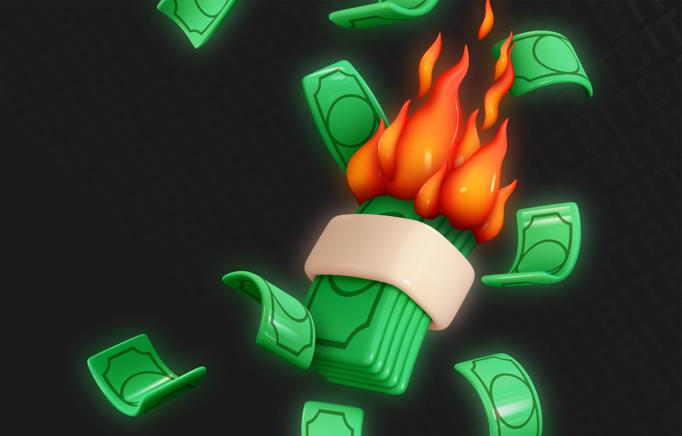Inflation, Deflation, Stagflation
العملات المشفرة للمبتدئين
مقالات أخرى
Inflation
Inflation is defined as a steady increase in the total price level of goods and services in a given economy. It refers to a decrease in the buying power of a currency used in the economy. As a result, more currency units are required to purchase the same amount of goods and services. Whether it's food, toothpaste, rent, or medical services, your money buys you less.
When prices grow faster than salaries, inflation occurs, resulting in a loss of buying power. It encourages people to spend more dollars, euros, or other currencies on basics, putting the typical consumer in a financial bind. It can also help to cut down on discretionary expenditures.
When inflation is rising with years, that means that 10 years ago you would pay 100 USD for some item, while now you would have to pay for example 110 USD for the same item.
Deflation
When consumer and asset prices fall over time, buying power rises. This is known as deflation. In other words, with the same amount of money you have today, you can buy more products or services tomorrow. This is the inverse of inflation, which is defined as the progressive rise in prices across the economy. While deflation may appear to be a wonderful thing, it might signify the start of a recession and difficult times ahead.
When individuals believe prices are going down, they put off purchasing in the hopes of getting a better deal later. Reduced spending, on the other hand, means less income for producers, which can lead to job losses and higher interest rates. This negative feedback loop results in more unemployment, decreased prices, and less consumption.
When deflation is rising with years, that means that 10 years ago you would pay 110 USD for some item, while now you would have to pay for example 100 USD for the same item.
Stagflation
Stagflation is a term that combines the terms "stagflation" and "inflation." It refers to a state of the economy marked by poor growth and high unemployment (economic stagnation), as well as rising prices (inflation).
In a speech to the House of Commons in 1965, British Conservative Party politician Iain Macleod used the word for the first time: "We now have the worst of both worlds - not only inflation on one hand, and stagnation on the other, but both. We're in the midst of a stagflation crisis, and contemporary history is being written."
Stagflation was first thought to be impossible by many economists. After all, the unemployment rate and the rate of inflation usually move in opposing directions. Stagflation is real, and it can have a disastrous effect on the economy, as the 1970s' "Great Inflation" era shown.


